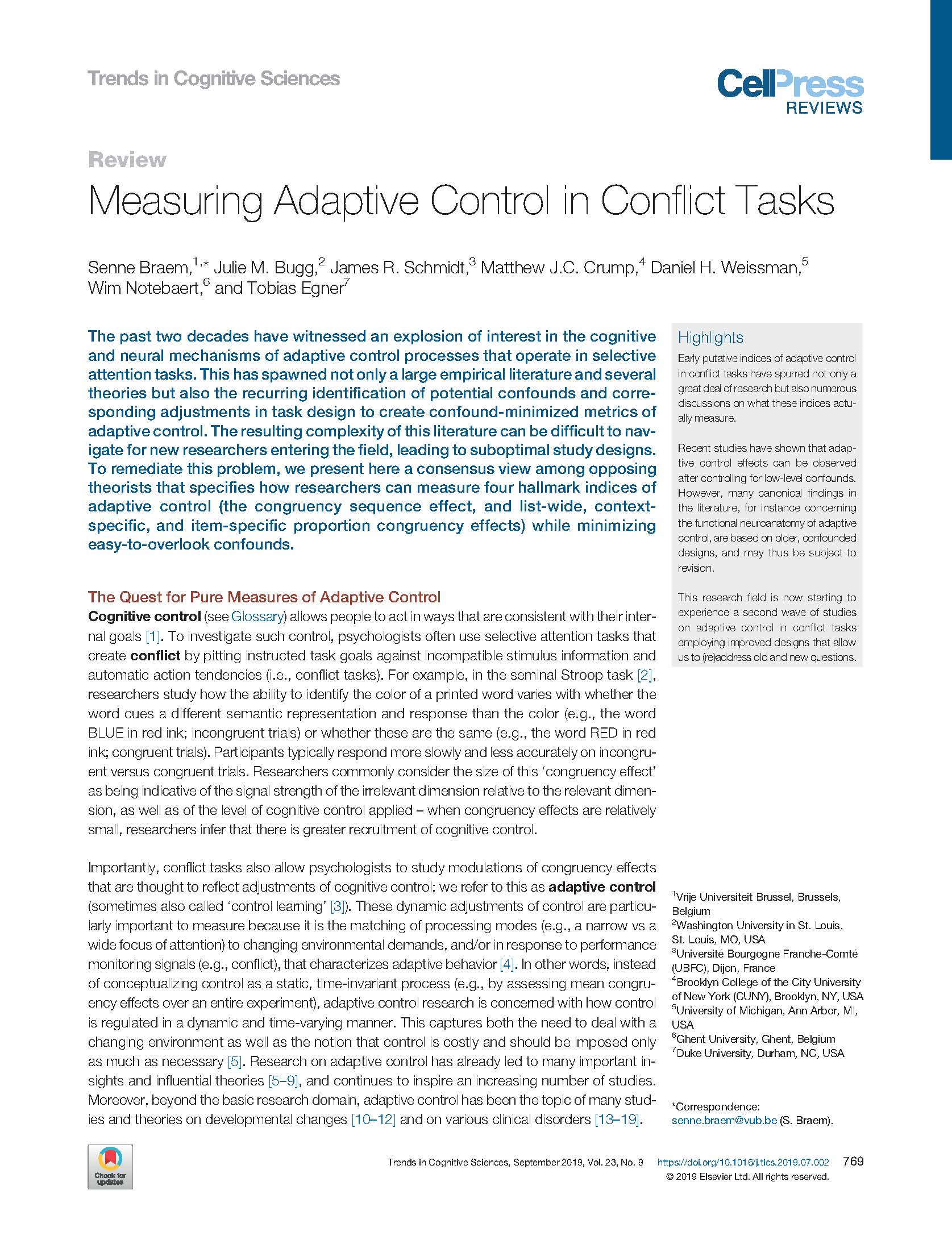The past two decades have witnessed an explosion of interest in the cognitive and neural mechanisms of adaptive control processes that operate in selective attention tasks. This has spawned a large empirical literature and several theories, but also recurring identification of potential confounds and corresponding adjustments in task design to create confound-minimized metrics of adaptive control. The resultant complexity of this literature can be difficult to navigate for new researchers entering this field, leading to sub-optimal study designs. To remediate this problem, we here present a consensus view among opposing theorists that specifies how researchers can measure four hallmark indices of adaptive control (the congruency sequence effect, and the list-wide, context-specific, and item-specific proportion congruency effects) while minimizing easy-to-overlook confounds.
Measuring adaptive control in conflict tasks
